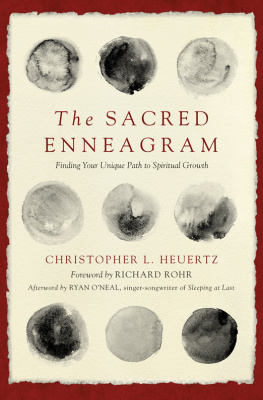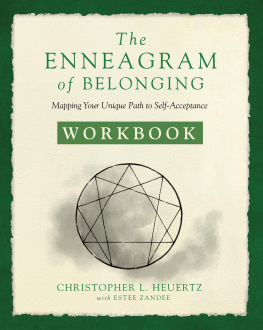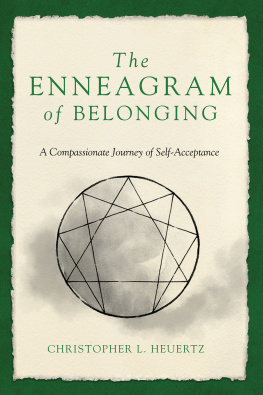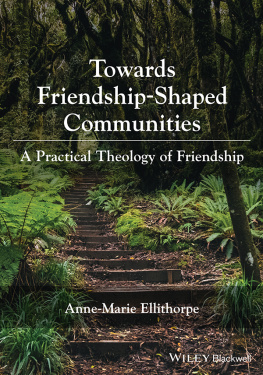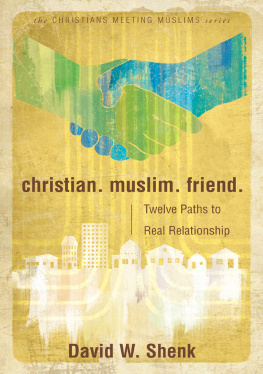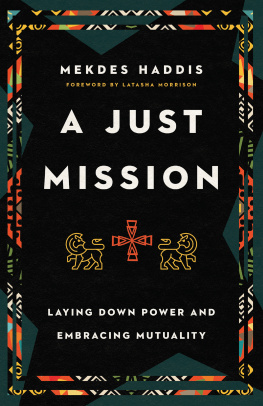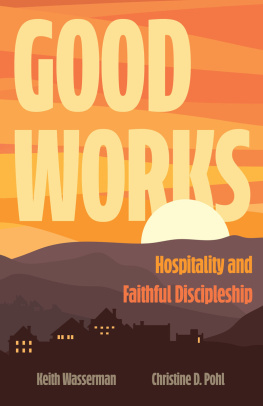About the Duke Divinity School Center for Reconciliation
Our Mandate
Established in 2005, the centers mission flows from the apostle Pauls affirmation in 2 Corinthians 5 that God was in Christ reconciling the world to himself, and that the message of reconciliation has been entrusted to us.
In many ways and for many reasons, the Christian community has not taken up this challenge. In conflicts and divisions ranging from brokenness in families, abandoned neighborhoods, urban violence and ethnic division in the United States to genocide in Rwanda and Sudan, the church typically has mirrored society rather than offering a witness to it. In response, the center seeks to form and strengthen transformative Christian leadership for reconciliation.
Our Mission
Rooted in a Christian vision of Gods mission, the Center for Reconciliation advances Gods mission of reconciliation in a divided world by cultivating new leaders, communicating wisdom and hope, and connecting in outreach to strengthen leadership.
Our Programs
- Serving U.S. leaders through an annual Summer Institute, gatherings, study weeks and workshops
- African Great Lakes Initiative serving leaders in Uganda, southern Sudan, eastern Congo, Rwanda, Burundi and Kenya
- Annual Teaching Communities Week featuring leading practitioners and theologians
- In-depth formation in the ministry of reconciliation through residential programs at Duke Divinity School
- Teaching Communities apprenticeships in exemplary communities of practice
- Resources for Reconciliation book series
- Visiting Practitioner Fellows
How You Can Participate
- Pray for us and our work.
- Partner financially with the center.
- Join the journey. Whether you are a student, pastor, practitioner, ministry leader or layperson, the center wants to support you in the journey of reconciliation. Explore our website and see how we might connect. www.dukereconciliation.com
Please contact us for more information about the program or to help support our work.
The Center for Reconciliation
Duke Divinity School
Box 90967
Durham, NC 27708
Phone: 919.660.3578
Email: reconciliation@div.duke.edu
Visit our website: www.dukereconciliation.com.
Acknowledgments
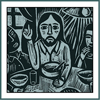
F or their friendship and assistance in reviewing the manuscript, we are especially grateful to Rob OCallaghan, Dave Chronic, Al Hsu, Ron Pohl, Jonathan Wilson-Hartgrove and Sarah Jobe.
1

The Vocation of Relationship

I n Macau, there is a cemetery filled with the graves of women and men who came to China as missionaries during the early 1900s. Most of them had lived only a few years in their new and unfamiliar environment. Their grave markers stand as a stark reminder of the history of Christian missiona legacy often marked by great personal sacrifice.
Missionaries to Africa during that same time period faced similar hardships. With a profound awareness of the costs involved, some women and men packed their belongings in coffins, moving to Africa with the expectation of dying there. And many did, their lives and ministries on the continent shortened by disease and tragedy.
We have come a long way since then. Most people serving in mission today dont move to a foreign country expecting to be buried there. Immunizations and advances in health care reduce some of the risks. Air travel allows easier access in and out. Mission organizations work hard to ensure that crosscultural service is physically, emotionally, mentally and spiritually sustainable. Developments in technology mean missionaries dont wait months for a word from home; it is now possible to talk with family members halfway round the world as if they were across town.
But in the meantime, the mission enterprise itself has come under cultural, theological and political criticism. Mission organizations face complex questions about their roles and responsibilities in relation to local churches and leadership. Increasing sensitivity to the tendency to export a particular culture along with the gospel has challenged groups to rethink many of their mission paradigms.
Although resources have dramatically improved the sustainability of missionary service, it is increasingly rare to find people vocationally committed to the traditional career missionary lifetime of ministry. Today, the models are often short terma few years in a place or perhaps a few short-term mission trips.
When we were exploring the possibility of mission as vocation, I (Chris) and my wife, Phileena, visited friends in Hong Kong. They had spent nearly forty years serving as missionaries in India, China, Taiwan and Hong Kong. As we discussed with them the possibility of serving in a missional community, they were encouraged that young people were still considering long-term mission work. Perhaps to inspire us, or perhaps to help us count the cost, they took us to the cemetery in Macau for a time of sobering reflection. They told us the story about the coffins.
As Phileena and I considered our call to mission, the notion of it becoming our career seemed stifling. We were the poster children of postmodern Gen Xers. From the start, we rejected the career paradigm and opted for an approach to mission that was more identified with community.
For us, a focus on career seemed to suggest that we would become specialists in evangelism or mission and that we would go to a foreign land or inner city and be the designated workers for the kingdom. We were uncomfortable with a model that made us special and left most Christians able to stay at home to pursue their careers confident that someone else was doing mission or looking after those poor people far away.
We were looking for a model that connected mission to everyday life and that located mission and ministry within community. We quickly discovered that for us this would mean moving back and forth between multiple worlds, not being specialists but dwelling with and becoming bridges between several communities.
Community would become our starting point in mission. Community would inform what we did and how we lived into our vocations of service. As we found ourselves given the opportunity to rebuild the missional organization Word Made Flesh, a central commitment to the ideals and practice of community shaped our decisions and choices.
Of course, career missionaries also had strong commitments to community. Those who lasted on the mission field usually had found ways to live in communitywith the local people or in missionary compounds. Attrition was often tied to breakdowns in relationships. But we were looking for a model that was built on friendships and connectionsamong churches and friends in the United States, with fellow staff members of WMF, and with the people with whom we located ourselves in other places.
From the start, our emphasis on community included rejecting certain assumptions that had shaped some mission approaches: that gifts flow in one direction only and that a substantial social distance between donors and recipients is necessary if not good. We were particularly troubled by the unintended consequences that followed from these assumptionsefforts to love the stranger while remaining separate from her or his life, reducing the poor to objects of charity, and the deep loneliness often experienced by Christians on the mission field.


